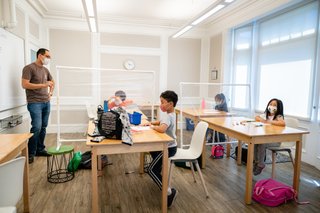When school closes poor pupils lose a social institution of last resort —one that educates, feeds, counsels and sometimes clothes them— whereas richer pupils are more insulated. A new industry of “learning pods”, where a cluster of families pool cash to pay for an in-person tutor, makes the governess model accessible to many. Scoot Education, whose normal business is providing substitute teachers for schools, quickly developed a sideline in learning pods in California. At least 100 such pods will be in place by the end of August, says James Sanders, the company’s CEO. For younger pupils the total cost of a pod, shared among all parents, is $349 a day.

To some, parents who pay for pods or other tutoring are complicit in deepening inequality. Yet pods are more a flashy symptom of educational inequality than the cause. “Rich families find a way to opportunity- hoard no matter what, even if this pandemic had not started,” says Sarah Cohodes, a professor at Teachers College at Columbia University. Some charities, like the Tennessee Tutoring Corps, have tried to spread access to tutors to less wealthy children, but efforts at scale (a federally funded national tutoring corps, say) look unlikely.
译文由可可原创,仅供学习交流使用,未经许可请勿转载。













